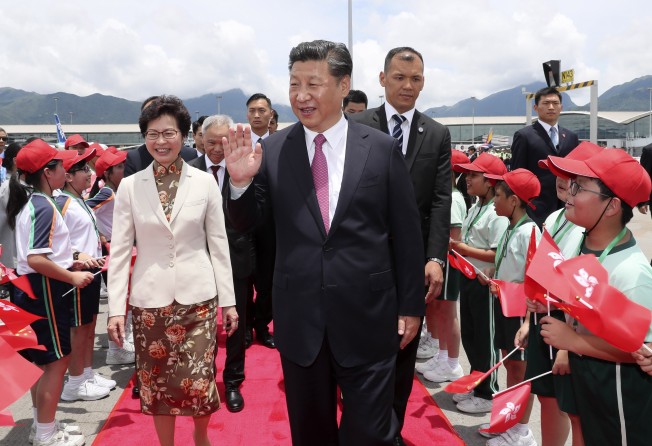Give Xi Jinping credit for an inevitable Hong Kong policy
President deserves to be praised for facing up to ‘unprecedented challenges’ and accurately implementing the ‘one country, two systems’ principle

President Xi Jinping’s leadership has been credited with facing up to “unprecedented challenges” in Hong Kong over the past five years and implementing “accurately and unswervingly” the “one country, two systems” principle.
Xi’s praises were sung in an article published in the party’s flagship journal Qiushi, or Seeking Truth. Whether the policy pursued by Beijing in Hong Kong over the past five years helped resolve or heighten social conflicts and political struggles is debatable.
But there is no doubt that under Xi, Beijing’s attitude has undergone a sea change from the eras of Jiang Zemin and Hu Jintao.
His political instinct always tends towards the hardline. That’s the case with the South and East China seas, the crackdowns on domestic dissent and official corruption, and so it is with Hong Kong.
If the Hong Kong government was given a relatively free hand to run the city under the first two chief executives, that’s no longer the case now. It’s a comprehensive policy. In the social sphere, it has been called mainlandisation, a curse word in Hong Kong but it might as well be the label of an official policy as far as Beijing is concerned.
In the political sphere, its hardline position was spelt out in the white paper of June 2014, which states the central government holds “comprehensive jurisdiction” over Hong Kong and is the sole source of its autonomy, with no so-called “residual powers” left over for the city. It was further elaborated in the August 31 decision of the Standing Committee of the national parliament, which set a restrictive framework for the free elections of the chief executive and legislators.
Meanwhile, mainlandisation is going full steam ahead with cross-border integration. We are in the midst of an infrastructure-building boom with showcase projects such as the 40km Hong Kong-Zhuhai-Macau bridge, and the express rail line connecting Hong Kong to Guangzhou and the rest of the mainland high-speed network; joint customs and immigration clearance, anyone?
In education, Chinese history is being made mandatory again, and versions of national education are being revived. In the legislature, a loyalist majority is being entrenched. The list goes on.
Xi really does deserve full credit for a policy towards Hong Kong that is comprehensive, total and inevitable.